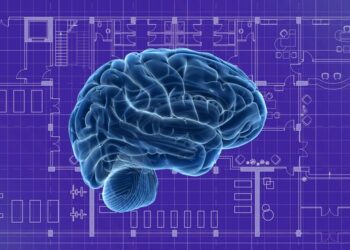The world of work is changing at an unprecedented pace, driven by technological innovation, global shifts, and a renewed focus on sustainability and human well-being. The degrees that guaranteed a stable career a decade ago may not hold the same promise today. The key to a successful career in the coming years is to choose a field that is not only in demand but also future-proof, a discipline that equips you with the skills to adapt and thrive in an ever-evolving job market. The best degrees for 2025 are those that align with these major trends, offering a blend of specialized knowledge and versatile, transferable skills.
This comprehensive guide will explore the most promising degrees with the strongest long-term prospects. We will delve into the reasons why these fields are poised for growth, detailing the skills you’ll learn, the diverse career paths you can take, and the strategic advantages they offer in a competitive global economy.
The Tech Frontier

Technology is no longer a separate industry; it is the infrastructure for every aspect of modern life. The following degrees are at the forefront of this revolution, offering some of the highest salaries and most robust job markets.
- A. Computer Science and Software Engineering: At the core of the tech revolution is the ability to build and manage the digital world. A degree in Computer Science or Software Engineering is the fundamental key to this domain. It’s a versatile and highly sought-after degree that teaches the principles of computation, algorithms, and data structures. It is the foundation upon which every digital product is built, from social media apps to complex financial systems.
- Skills Learned: Students gain a deep understanding of programming languages (like Python, Java, and C++), software development methodologies (Agile, Scrum), and fundamental computer architecture. They learn how to design, write, test, and maintain software, a skill set that is in constant demand.
- Career Paths: The career opportunities are nearly limitless. Graduates can become Software Developers, building applications for various platforms; Cloud Engineers, managing the infrastructure of the internet; Mobile App Developers, creating the next generation of smartphone applications; or Machine Learning Engineers, specializing in building AI systems. The demand for these roles far outstrips the supply, leading to high starting salaries and significant career growth.
- B. Data Science and Analytics: In the information age, data has become the most valuable commodity. A degree in Data Science or Analytics is designed to teach you how to collect, analyze, and interpret this vast ocean of information to make intelligent decisions. This field is crucial for every industry, from healthcare and finance to retail and entertainment.
- Skills Learned: Students master a combination of statistics, mathematics, and computer science. They learn to use programming languages like Python and R, master databases using SQL, and apply sophisticated machine learning algorithms to uncover hidden insights.
- Career Paths: Graduates can pursue roles such as a Data Scientist, who builds models to predict future outcomes; a Business Intelligence Analyst, who helps companies optimize their operations; a Market Research Analyst, who uses data to understand consumer behavior; or a Financial Analyst, who uses data to identify market trends. The ability to translate data into a compelling story is a highly valued skill.
- C. Cybersecurity: As our lives become more digital, the need to protect our information becomes more critical than ever. A degree in Cybersecurity is for the guardians of the digital world, those who are trained to defend against a constant barrage of threats from hackers, malicious software, and organized cybercrime.
- Skills Learned: This degree provides a strong foundation in network security, digital forensics, ethical hacking, and risk management. Students learn how to identify vulnerabilities, build secure systems, and respond to security breaches. The field requires a blend of technical expertise and a constant curiosity to stay one step ahead of a rapidly evolving threat landscape.
- Career Paths: Demand for cybersecurity professionals is growing exponentially. Graduates can become a Security Analyst, who monitors a company’s network for threats; a Cyber Forensics Expert, who investigates digital crimes; an Ethical Hacker, who tests a company’s defenses to find weaknesses; or a Chief Information Security Officer (CISO), a high-level executive role.
- D. Artificial Intelligence and Machine Learning: This is the cutting edge of technology, and a degree in AI or Machine Learning is for those who want to be at the forefront of innovation. This field is not just about building robots; it’s about creating intelligent systems that can learn, reason, and make decisions.
- Skills Learned: This is a highly specialized field that requires a strong background in mathematics, computer science, and engineering. Students delve into subjects like neural networks, deep learning, natural language processing, and computer vision.
- Career Paths: As AI becomes integrated into every aspect of our lives, the demand for experts is skyrocketing. Graduates can work as an AI Research Scientist, a Robotics Engineer, a Natural Language Processing (NLP) Specialist, or an AI Product Manager. The work is intellectually challenging and can lead to some of the most impactful breakthroughs of our time.
The Green Economy
The global transition to a sustainable economy is one of the most significant trends of the 21st century. The following degrees are at the heart of this movement, offering careers that are not only in demand but also have a positive impact on the world.
- A. Renewable Energy Engineering: The shift from fossil fuels to clean energy is creating a massive demand for professionals who can design, build, and maintain the infrastructure of tomorrow. A degree in Renewable Energy Engineering is the key to this field.
- Skills Learned: Students gain expertise in a variety of clean energy sources, including solar, wind, geothermal, and hydropower. They learn how to design efficient systems, analyze energy production, and manage large-scale projects.
- Career Paths: Graduates can work as a Solar Energy Engineer, designing and installing photovoltaic systems; a Wind Turbine Specialist, who works on the maintenance and optimization of wind farms; or a Project Manager, who oversees the construction of new power plants. The entire industry is expanding, creating a multitude of opportunities.
- B. Environmental Science and Sustainability: This degree is for those who want to understand the complex relationship between humans and the environment. It is a broad and interdisciplinary field that addresses issues ranging from climate change and pollution to conservation and resource management.
- Skills Learned: Students acquire a strong foundation in biology, chemistry, and ecology, as well as an understanding of environmental policy and law. They learn how to conduct research, collect data, and develop sustainable solutions for businesses and governments.
- Career Paths: Graduates can work as an Environmental Consultant, advising companies on sustainable practices; a Policy Analyst, working for a government agency to develop new environmental regulations; a Corporate Sustainability Officer, helping a company reduce its carbon footprint; or a Conservation Scientist, working to protect natural ecosystems.
- C. Urban Planning and Design: As the world’s population becomes more urbanized, the need for intelligent and sustainable city planning is more critical than ever. A degree in Urban Planning is for those who want to design the smart, green cities of the future.
- Skills Learned: This degree provides expertise in land-use planning, public policy, transportation systems, and urban economics. Students learn how to create livable, equitable, and environmentally friendly communities.
- Career Paths: Graduates can work as a City Planner, who designs new neighborhoods and public spaces; a Transportation Planner, who develops new transit systems; or a Community Development Manager, who works to improve the quality of life in urban areas.
The Human Touch
While technology is automating many jobs, it is also creating a growing demand for professions that require a human touch—empathy, communication, and emotional intelligence. These degrees are in fields where a human presence is essential and cannot be replicated by a machine.
- A. Nursing and Public Health: The global population is aging, and the demand for quality healthcare is growing at an unprecedented rate. A degree in Nursing is a direct path to a secure, stable, and highly rewarding career. Nurses are the front line of healthcare, providing compassionate care and expertise that are irreplaceable.
- Skills Learned: Nursing programs provide a rigorous education in human anatomy, pharmacology, patient care, and medical procedures. Students also develop critical thinking skills, problem-solving abilities, and a high degree of emotional intelligence.
- Career Paths: The career opportunities are vast. Nurses can work in hospitals, clinics, schools, and private practices. They can specialize in a wide range of fields, including critical care, pediatrics, and gerontology. The job stability and consistent demand make nursing one of the most secure professions.
- B. Psychology and Mental Health: The increasing awareness of mental health has led to a growing demand for professionals who can provide counseling, therapy, and support. A degree in Psychology is the first step toward a career in this vital field.
- Skills Learned: Students gain a deep understanding of human behavior, cognitive processes, and emotional development. They learn how to conduct research, analyze data, and apply psychological principles to help individuals and groups.
- Career Paths: While a bachelor’s degree is a start, a master’s or doctoral degree is required for a professional practice. Graduates can work as a Therapist, a Counselor, a Social Worker, or a Psychologist, providing essential services that can improve lives and promote well-being.
- C. Business Administration (with a Digital Focus): While some traditional business roles are changing, the core principles of management, finance, and marketing will always be needed. A modern degree in Business Administration is versatile and highly adaptable.
- Skills Learned: A good program will provide a strong foundation in accounting, finance, marketing, and human resources. Crucially, a modern business degree now integrates digital skills, such as data analysis, digital marketing, and project management tools.
- Career Paths: Graduates can pursue roles in every industry. They can become a Financial Manager, a Marketing Strategist, a Project Manager, or a Human Resources Specialist. The digital focus of a modern business degree ensures that graduates are prepared for a world where every company is a tech company.
- D. Digital Marketing: The internet has revolutionized how businesses connect with their customers. A degree in Digital Marketing is for those who want to be experts in this dynamic and fast-paced field.
- Skills Learned: Students learn the principles of marketing and branding, with a specialized focus on digital channels. They master skills in Search Engine Optimization (SEO), Content Marketing, Social Media Management, Paid Advertising (PPC), and Email Marketing. They learn how to use data to create effective campaigns and drive business growth.
- Career Paths: The demand for digital marketing professionals is high in every industry. Graduates can work as an SEO Specialist, a Content Marketing Manager, a Social Media Strategist, or a Digital Advertising Manager.
Skills for the Modern Professional

A degree is not a finish line; it is a starting point. The most successful professionals in the coming years will be those who possess a set of “soft skills” that complement their specialized knowledge. These are the skills that robots can’t replicate, and they are what will give you a competitive edge.
- A. Critical Thinking and Problem-Solving: The ability to analyze complex situations, identify problems, and develop creative solutions is a skill that is needed in every job. It is the ability to think independently and to apply your knowledge to new and unfamiliar challenges.
- B. Communication and Collaboration: In a globalized and interconnected world, the ability to work effectively in a team is non-negotiable. Excellent communication skills, both written and verbal, are essential for building relationships, conveying ideas, and leading a team to success.
- C. Adaptability and Lifelong Learning: The single most important skill of all is the ability to adapt. The pace of change in every industry means that the skills you learn in college will not be enough for your entire career. The most successful professionals are those who are constantly learning, staying current with new technologies and trends, and embracing change with an open mind.
Conclusion
Choosing a college degree is one of the most important decisions of your life. It is a significant investment of time, money, and effort, and the choice you make today will shape your career for years to come. While it is impossible to predict the future with 100% certainty, a strategic approach can significantly increase your chances of success. By aligning your education with the major trends of our time—technology, sustainability, and human-centric services—you are providing yourself with a strong foundation for a career that is both secure and meaningful.
A degree is a powerful tool, but it is not a magic solution. The job market of 2025 and beyond will be highly competitive, and the most successful graduates will be those who not only possess a high-demand degree but also a strong set of soft skills, a relentless curiosity, and a commitment to lifelong learning. The key is to find a balance between a field with strong market demand and a subject that genuinely excites you. Passion is a powerful motivator for success, and a fulfilling career is one that combines your natural talents with a genuine interest in your work. So, take the time to explore your options, research your chosen field, and make a strategic choice for your future. The degrees we have discussed are not just paths to a job; they are gateways to a fulfilling and impactful career.












